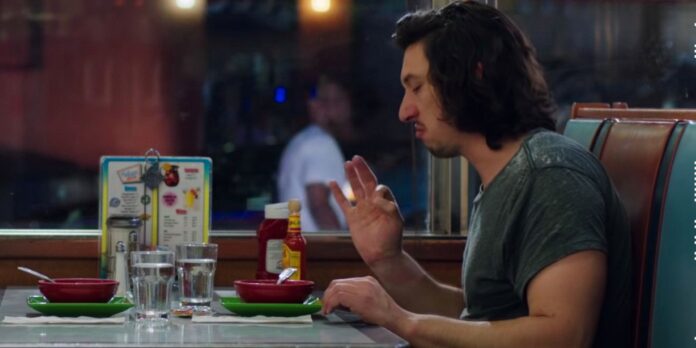Up until a few months ago, if someone had said “Good soup” to me without any context, I would have stared at them in confusion and disbelief.
“What soup? Where is this soup? Why is it good?” were all questions running through my mind when I first encountered this phrase on my social media pages.
Now, if I find something to be pleasurable or up to par, instead of saying it’s a good or great thing, I simply exclaim, “Good soup” — and depending on who I’m around, I’ll get a few head nods in agreement from those who also believe that whatever I’m describing is satisfactory.
The phrase “Good soup” became a popular sound on TikTok in late-August 2021. It is originally from a 2017 episode of HBO’s “Girls,” a TV show written by and starring Lena Dunham as one of four young women living in New York, looking to see what the city has in store for them. In the episode, Adam Driver slurps a big spoonful during an intense, emotional conversation with Dunham’s character, following up with the simple line, “Good soup,” and a sharp OK hand symbol.
According to Know Your Meme, users began posting lip dubs this past summer when referring to ramen, their tears or other non-soup objects as “Good soup.”
But “Good soup” is just one example of a meme — an idea, behaviour, style or usage that spreads from one person to another in a culture — going beyond the screen and pop culture entering our vocabulary.
Popular culture is generally recognized as “the vernacular or people’s culture that predominates in a society at a point in time,” and it is determined by much more than just one single form of artistic expression. It involves media, sports, celebrities, brands and fads of all sorts.
In an article for Unbabel, Raquel Magalhães details the influence of pop culture on our language and vocabulary. Since we are constantly exposed to content, be it in-person or online, elements of popular culture are integrated into almost every aspect of our lives.
This isn’t a new concept — even before TikTok, people often incorporated popular phrases into their everyday conversations, such as the infamous “How you doin’?” from Friends and “No, I am your father,” from Star Wars.
Part of the reason why these phrases become integrated into our lives is the sense of belonging to a community.
In “Pop Culture: An Overview,” Tim Delaney notes the inclusionary role pop culture plays in society.
“Along with forging a sense of identity which binds individuals to the greater society, consuming pop culture items often enhances an individual’s prestige in their peer group,” Delaney writes. “Further, popular culture, unlike folk or high culture, provides individuals with a chance to change the prevailing sentiments and norms of behaviour, as we shall see. So popular culture appeals to people because it provides opportunities for both individual happiness and communal bonding.”
British sociolinguist Peter Trudgill states that no matter how much media we consume, the content doesn’t become a part of our vocabulary until we start using it in our everyday lives.
“The electronic media are not very instrumental in the diffusion of linguistic innovations, in spite of widespread popular notions to the contrary. The point about the TV set is that people, however much they watch and listen to it, do not talk to it…Face-to-face interaction is necessary before diffusion takes place, precisely because it is only during face-to-face interaction that accommodation occurs,” he writes.
Magalhães also writes that it is the exchange of expressions derived from the media between people, and not necessarily their exposure to them, that influences language.
According to a 2018 article by Joe Veix titled, “Working Towards a Complete Theory of Meme Relativity,” the average lifespan of a meme is approximately four months. Since “Good soup” first became popular in August, it appears as though its popularity is coming to an end (it peaked in early- to mid-September, when “Good soup” was its best). Though I plan to keep it in my vocabulary for at least a little while longer, I’m sure more pop culture terms will transition from my TikTok For You Page to my everyday interactions soon.































